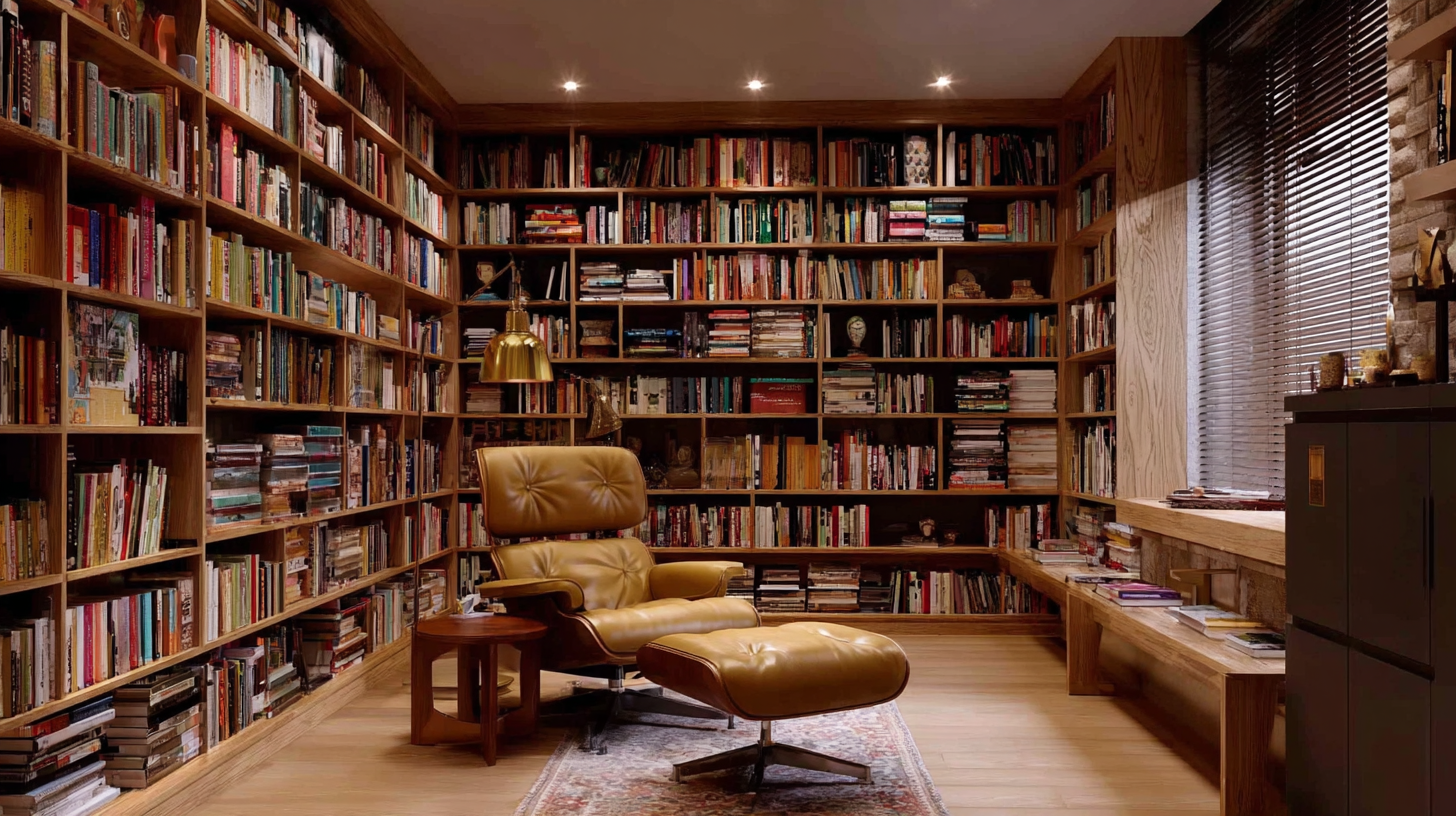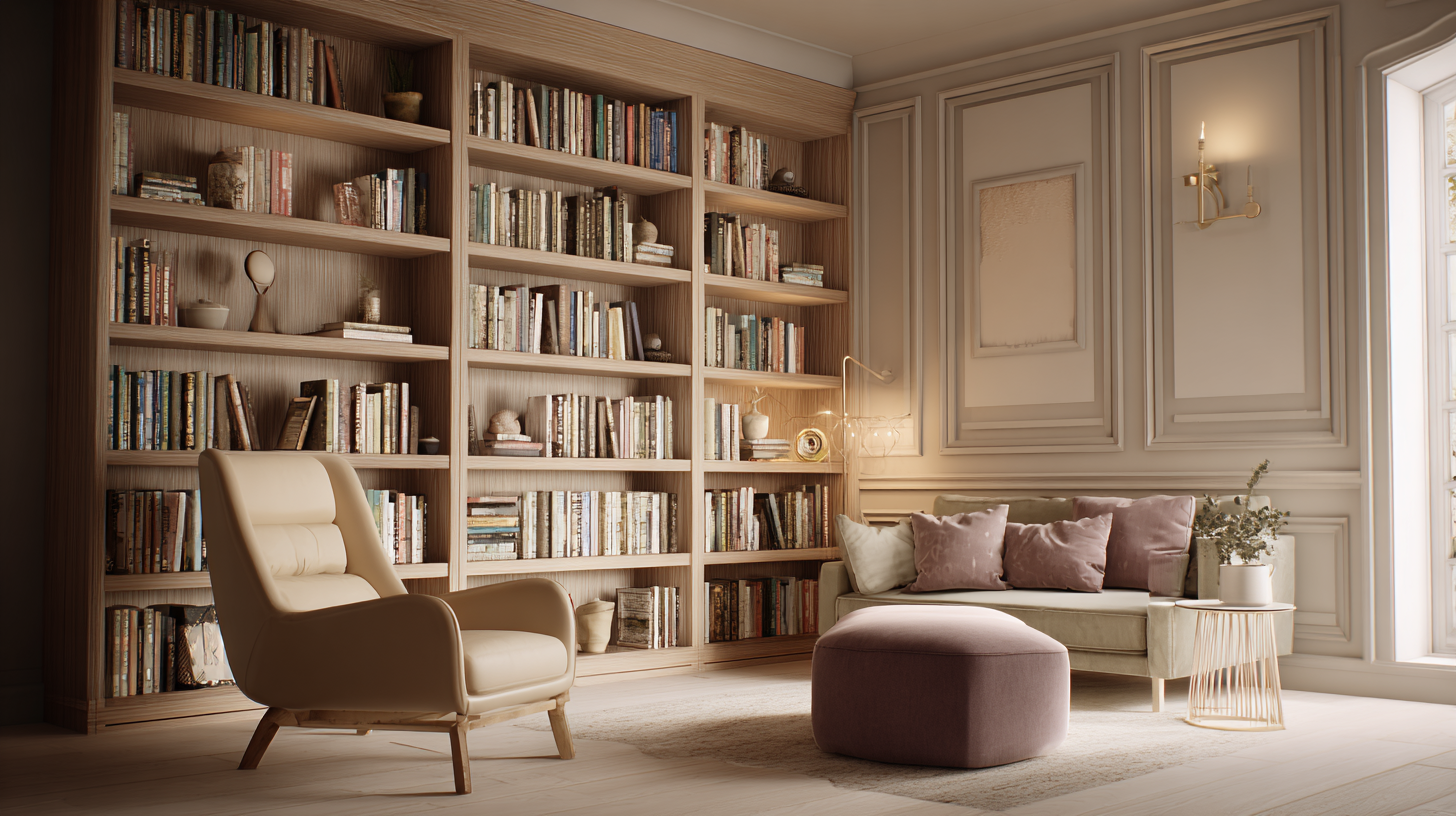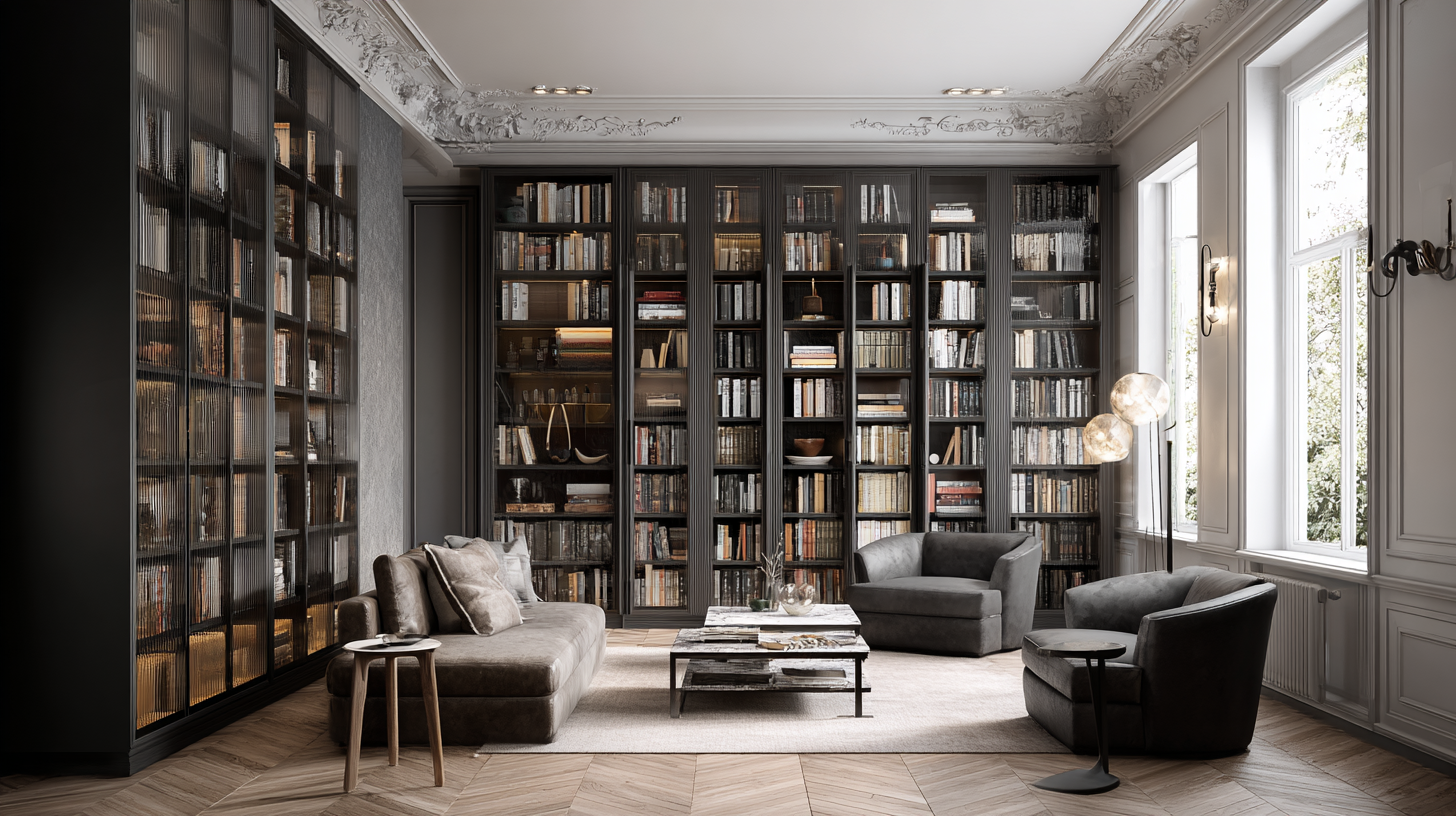As we navigate through 2025, the evolution of technology continues to reshape our living and working environments, underscoring the importance of versatile furniture solutions like the bookcase. According to a recent market research report from IBISWorld, the global bookcase market has seen an annual growth rate of 3.5% as consumers increasingly seek multifunctional furnishings that blend style with practicality. This trend highlights the bookcase as not just a storage solution, but also a statement piece capable of enhancing any space, whether in homes, offices, or educational settings. The ideal bookcase combines aesthetic appeal with innovative features, catering to diverse applications—from organizing books and decorative items to serving as a workspace and display area. This blog will delve into the various attributes that make the best bookcases indispensable tools for modern living, while examining their wide-ranging applications and the benefits they offer in today’s dynamic interior landscapes.

In today's global marketplace, industry import and export certifications play a pivotal role in ensuring product authenticity and compliance. According to a recent report by the World Trade Organization, over 80% of trade flows now require some form of certification. These certifications not only facilitate smoother international transactions but also enhance consumer confidence, impacting sales positively. For instance, in the furniture sector, having certifications such as ISO (International Organization for Standardization) can lead to an increased market share, as 63% of consumers indicate they prefer purchasing from certified brands.
Moreover, certification can significantly affect supply chain dynamics. A study published by the International Trade Centre highlighted that companies with recognized certifications experience up to 20% fewer trade disputes. This is particularly relevant when it comes to items such as bookcases, where the assurance of quality materials and craftsmanship can be easily conveyed through proper certifications. As e-commerce continues to expand, the significance of industry certifications will likely increase, making it imperative for manufacturers and retailers to prioritize obtaining the necessary credentials to flourish in an increasingly competitive landscape.
When selecting a bookcase, one of the key considerations should be the certification of the manufacturer. Certifications signal that a bookcase meets specific safety and quality standards established by industry authorities. For instance, certifications like ANSI/BIFMA ensure that furniture is made with quality materials and adheres to ergonomic and environmental guidelines. A certified bookcase not only enhances the aesthetic of a space but also assures buyers of its durability and functionality.
In addition to safety certifications, it’s essential to consider eco-friendly credentials such as GREENGUARD or FSC certification. These indicators ensure that the materials used are sustainable and safe for indoor air quality, making them ideal for both home and office environments. Choosing a certified bookcase from reputable manufacturers provides peace of mind, knowing that your investment not only supports responsible business practices but also contributes to a healthier environment. Thus, when exploring the versatility of bookcases, understanding the significance of certifications is crucial for making an informed choice.
The certification of furniture in the export market plays a crucial role in ensuring quality, safety, and sustainability. As the global demand for furniture grows, manufacturers must comply with various international standards to meet consumer expectations and regulatory requirements. Certifications such as ISO, FSC, and GREENGUARD not only assure buyers of the product's credentials but also enhance the credibility and marketability of furniture brands. For bookcases, these certifications can indicate the use of environmentally friendly materials and non-toxic finishes, appealing to eco-conscious consumers.
In addition to enhancing consumer trust, certification can significantly impact a company’s export capabilities. Countries have specific regulations regarding the import of furniture, particularly in terms of safety and environmental standards. A well-certified product opens doors to new markets and can ease the export process. Manufacturers who invest in obtaining relevant certifications position themselves competitively, as they can access wider distribution networks and possibly command higher prices for their certified products. Thus, in the furniture export market, certification is not just a label; it is a vital strategy for success and sustainability, particularly for versatile pieces like bookcases that adapt to various consumer needs.
| Feature | Description | Ideal Application |
|---|---|---|
| Material Quality | Durable wood or metal construction | Residential and commercial spaces |
| Design Versatility | Available in various styles and finishes | Home offices, libraries, and living rooms |
| Storage Capacity | Multiple shelves for books and decor | Personal collections and professional use |
| Mobility | Some designs feature wheels for easy movement | Dynamic workspace environments |
| Customization | Options for adopting bespoke dimensions | Unique interior design projects |
| Sustainability | Eco-friendly materials and production processes | Environmentally conscious consumers |
Navigating the regulatory landscape for global bookcase trade can be a complex task for manufacturers and retailers alike. Understanding the specific regulations that apply in different countries is crucial for ensuring compliance and avoiding costly penalties. This means staying informed about import and export laws, product safety standards, and environmental regulations that may vary significantly from one region to another.
One useful tip for businesses is to consult with a trade compliance expert who can provide guidance tailored to specific markets. They can help interpret complex regulations, ensuring that your bookcases meet all necessary criteria before they reach the consumer. Additionally, developing a robust compliance checklist can streamline this process and serve as a reference point for future transactions.

Another tip is to engage with industry associations that often provide resources and updates on regulatory changes. These organizations can be invaluable in sharing best practices and connecting businesses with legal advisors who specialize in global trade. By leveraging these resources, businesses can more effectively navigate the increasingly intricate world of international bookcase trade.
When it comes to importing and exporting bookcases, compliance is crucial for ensuring smooth operations and minimizing legal risks. Compliance not only helps businesses avoid fines and penalties but also establishes credibility in the global market. Importers and exporters who adhere to international trade regulations and standards are more likely to develop strong relationships with suppliers and customers, ultimately leading to sustained growth.
One beneficial tip for bookcase importers is to stay updated with the latest regulations relating to materials and safety standards in different regions. This diligence makes it easier to navigate potential hurdles and ensures that your products meet the required guidelines. Additionally, investing in compliance training for your team can significantly enhance the understanding of complex regulations, improving everyday decision-making.
For exporters, it’s essential to document every step of the shipping and customs process. This not only protects against misunderstandings or disputes but also streamlines operations by providing clear evidence of compliance. Utilizing digital tools or software designed for trade compliance can further simplify this process, allowing businesses to focus on their core operations while maintaining necessary compliance measures.

